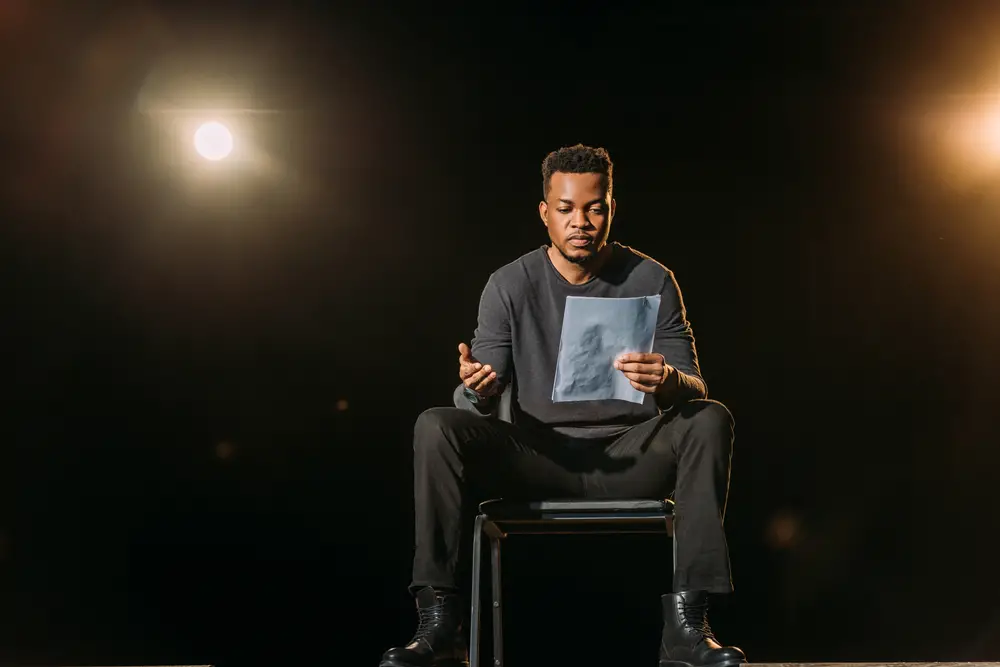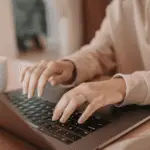If an actor forgets their lines it is not the end of the world, in fact, it is sometimes not even noticeable that the actor has forgotten.
The impact that an actor forgetting his lines will have depends on a lot of different factors, including the experience of the actor and the role that they are playing. Generally speaking, if an actor forgets his lines then they are usually fed to them by another actor, or someone side stage.
On occasion this might be noticeable to the audience, but more often than not the actor will be fed these lines without the audience realizing. The success of this, however, will depend on the experience that the actor has.

If an actor is well-experienced, then it is very rare that they will forget their lines. However, this will still occasionally happen.
In the unlikely event that a well-experienced actor forgets their lines then you usually will not notice. They will still be fed the lines by another actor or from someone side stage, but you probably will not notice as the actor will improvise. You are much more likely to notice if an actor forgets their lines if that actor lacks experience or is new to the job. Forgetting lines is fairly common, and it can often cause a flush of panic if the actor is new to this job.
But as you gain experience, forgetting lines not only becomes uncommon, but it also becomes easier to handle and improvise should you ever forget your lines again.
What is it called when an actor forgets his lines?
There is no set word for the event that occurs when an actor forgets his lines in show business, but there are a number of phrases that are thrown around when this does happen.
The most common phrase that is used when an actor forgets their lines is “drawing a blank”, and if this happens, that is when the prompter is required to do their job. Forgetting lines is incredibly common in acting, and it happens a lot more often than people think. This applies to all types of acting, including on screen and on stage.
If an actor forgets their lines for an on screen broadcast then the director will usually call “cut!” and filming will resume once that actor has been fed their lines. But when it comes to stage shows, it is impossible to call “cut!” which is why a prompter is required. As we have said, when an actor forgets his lines then they are fed them by either someone side stage, or someone on stage. The importance of the line that they have forgotten will also impact how the lines are fed to them. If nobody on stage is able to help, then the prompter will help the actor out by feeding them the line that they have forgotten. The most common way that an actor will be fed lines is using either a teleprompter that is located side stage, or large cards which have the lines written upon them.
In some other cases, if an actor has repetitively forgotten lines then they may be fitted with an earpiece to feed them the lines, but it is more likely for them to be displayed in written or electronic form.
How do you not forget your lines?
If you are an actor who works on stage, then one of the most difficult parts of the job can be learning your lines.
Over time, it will become easy to learn lines, but when you are first starting out it can be very difficult. If you are new to learning lines then the best way to start learning them is by reading through the script. Once you have read through the script a couple of times, you should then move on to writing out your lines. You should not type them, instead you should write them by hand as this will help further cement them into your memory.
You should do this a few times, depending on the number of lines that you have to learn, until you start beginning to learn the lines. After you have done that, you can then move onto reading your lines with another person. Running lines with a partner is one of the most common ways to learn lines, and it can also be an excellent fail-safe.
It is always a good idea to rehearse your lines with your onstage acting partner as this will also allow them to learn some of your lines, and vice versa. So if you or your partner forget your lines on stage, you might be able to help each other. Other than these methods, you might also benefit from quizzing yourself and learning the cue lines if you don’t want to forget your lines on stage.









